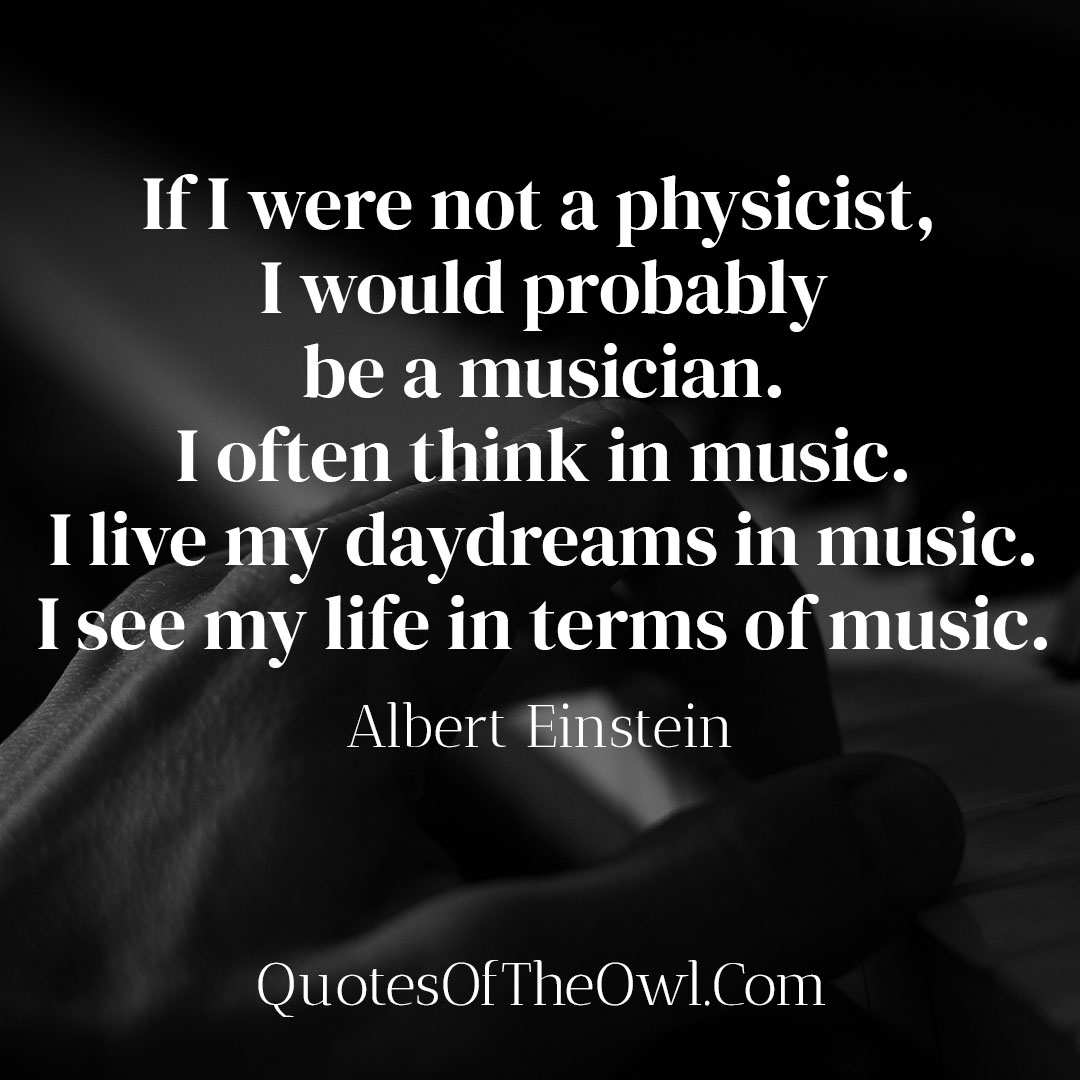What’s the meaning of Einstein’s Quote “If I were not a physicist, I would probably be a musician. I often think in music. I live my daydreams in music. I see my life in terms of music.”
Albert Einstein, the renowned physicist, once said, “If I were not a physicist, I would probably be a musician. I often think in music. I live my daydreams in music. I see my life in terms of music.” This quote has puzzled many, leaving them wondering what Einstein meant by it. Did he really have a love for music? Did his interest in music play any role in his scientific work?
Einstein and His Love for Music
It is believed that Einstein began playing the violin at the age of six. Throughout his life, he remained an avid lover of music, attending concerts and playing his violin regularly. In fact, he often said that music played an important role in his life and that he couldn’t imagine living without it.
Einstein’s Musical Preferences
Einstein was known to have a particular fondness for the works of Mozart, Bach, and Beethoven. He once said, “I love Mozart above all. He is simply divine,” and was known to have a special affinity for the violin sonatas of Mozart and Beethoven.
Einstein’s Musical Talents
While Einstein was not a professional musician, he was a competent violinist and was known to have played in small chamber groups with other amateur musicians. In fact, he once said that he often found playing music to be a more enjoyable and rewarding experience than his work as a physicist.
Einstein’s Philosophy on Music
Einstein believed that music was more than just a form of entertainment; he saw it as a means of connecting with something deeper and more meaningful. He once said, “Music is a higher revelation than all wisdom and philosophy.” For Einstein, music had the power to touch the soul and evoke deep emotions.
Einstein’s Belief in the Power of Music
Einstein believed that music had the power to transform individuals and society as a whole. He believed that it had the ability to bring people together, to transcend language barriers, and to foster creativity and innovation.
How Einstein’s Love for Music Influenced His Work as a Physicist
Einstein believed that the creativity and intuition required in musical composition were similar to those required in scientific discovery. In fact, he often used musical metaphors to describe his work in physics.
Music and Science
Einstein’s belief in the connection between music and science is not unfounded. Both music and science are rooted in patterns, whether they be the patterns of musical notes or the patterns of mathematical equations. Both fields require creativity and intuition, as well as discipline and technical skill. In fact, many famous scientists, such as Johannes Kepler and Galileo Galilei, were also accomplished musicians.
The Mathematical Nature of Music
Music and mathematics are also intimately connected. The frequency and intervals of musical notes are based on mathematical ratios and patterns. The study of music theory often involves mathematical concepts, such as fractions, ratios, and sequences. It’s no surprise that Einstein, who was renowned for his work in theoretical physics, saw a connection between music and mathematics.
The Importance of Creativity
Einstein believed that creativity was essential in both science and music. He saw science as a form of artistic expression, and music as a means of exploring new ideas and pushing the boundaries of what was possible. He once said, “Imagination is more important than knowledge. Knowledge is limited. Imagination encircles the world.”
Conclusion
Albert Einstein’s love for music was a deep and abiding one. He believed that music had the power to transform individuals and society, and saw a connection between music and science. For Einstein, music was more than just a form of entertainment; it was a means of connecting with something deeper and more meaningful.
Check out our collection of Albert Einstein quotes for further inspiration and insights.

